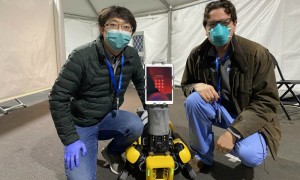How times change in China. Or maybe not. this year the People’s Bank of China replaced its monthly loan quota system with a new procedure — its Macro Prudential Assessment to monitor credit growth.
中国的变化多快啊。嗯,也许没怎么改变。今年,中国央行(PBoC)用新的流程——宏观审慎评估体系(Macro Prudential Assessment)——取代了月度贷款配额机制,以监测信贷增长。
The change comes at a time when once again the flow of total credit is being ratcheted up, both from the banks and the non-banks in an effort to support economic expansion.
此举出台之际,中国总的信贷资金流(源自银行和非银行类机构)规模再次加大,以求支持经济扩张。
Between the fourth quarter of 2008 and the end of the third quarter of last year, non-financial sector debt swelled 279 per cent and now amounts to 249 per cent of gross domestic product, data from the Bank for International Settlements show. Those numbers do not capture the jump in credit in recent months. China’s banks are meant to do their national service in a variety of ways — and never mind their obligations to minority shareholders.
国际清算银行(Bank for International Settlements)的数据显示,2008年第四季度至去年第三季度末期间,非金融部门的债务扩大了279%,如今相当于国内生产总值(GDP)的249%。这些数据并未计入最近几个月信贷的激增。中国各银行存在的目的就是以各种方式服务于国家——对少数股东的义务就别提了。
As Chris Wood, at Citic Securities, notes, recent talk of the banks converting part of their debts into the equity of their weaker corporate clients points to the “political reality that the interests of the banks could be subordinated to the interests of the real economy — a potential negative for shareholders in Chinese banks”.
正如中信证券(Citic Securities)的克里斯•伍德(Chris Wood)所指出的,近期有关银行把它们对较疲弱企业客户的部分债权转换为股权的言论,表明了“这样一个政治现实:银行的利益可能会屈从于实体经济的利益,这对中资银行的股东可能是个坏消息”。
It also suggests that another distressed debt cycle looms.
这也预示着又一个不良债务周期将要开启。
There have already been seven corporate defaults this year, with more likely. Credit spreads have widened as a result, which means that after a rush of issuance, the bond market may not be as kind to issuers, Mr Wood adds.
今年已经发生了七起企业违约,还可能发生更多违约事件。伍德补充说,这已导致信贷息差扩大,意味着在经历一轮债券发行热潮之后,债券市场对发行人可能不再像过去那样友好。
Many bold foreign investors are starting to consider the opportunity either in buying up loan portfolios, or in extending rescue financing to those sectors where the banks are forbidden to lend. Options include offering funds to property developers to buy new land banks, and taking as collateral existing projects.
许多大胆的外国投资者正在开始考虑两方面的机遇:一是买进贷款组合,二是向银行被禁止放款的那些部门提供援救资金。他们的选项包括向房地产开发商提供买入新的土地储备的资金,并接受现有项目作为抵押品。
In April, Huarong and Cinda , the asset management arms of ICBC and Cinda respectively set up by Beijing to help clean up bad loans, reported strong earnings, particularly in their distressed debt businesses, with annualised yields of about 12 per cent on restructured loans and returns of more than 20 per cent on disposed assets, CreditSights, the fixed income research boutique says. The combined purchase of distressed debt assets amounted to almost Rmb400bn ($61.4bn) in 2015, up 31 per cent from 2014, with sellers including non-financial institutions and banks.
固定收益研究机构CreditSights表示,今年4月,中国政府为了帮助清理不良贷款而设立的资产管理公司——华融(Huarong)和信达(Cinda)报出强劲的盈利增长,尤其是在不良债权业务上,重组贷款的年化收益约为12%,处置资产的回报率超过20%。2015年不良债权资产的总收购规模达到近4000亿元人民币(合614亿美元),比2014年上升了31%;卖家包括多家非金融机构和银行。
Much of that activity came from restructuring property debt, CreditSights adds. While this shows there is opportunity, it is not clear whether that extends to outsiders.
CreditSights补充说,这些业务活动有很大一部分来自对地产债务的重组。尽管这显示该领域存在机遇,但这些机遇会不会向局外人开放仍是一个问题。
Since Guangdong International Trust and Investment defaulted in 1998 — becoming the first formal bankruptcy of a big Chinese financial institution after its failure to repay a $120m loan to a foreign lender — foreigners have ventured into this treacherous turf with caution.
1998年,在未能向一家外资银行偿付1.2亿美元的贷款后,广东国际信托投资公司(Guangdong International Trust and Investment Corp)成为中国首家正式破产的大型金融机构。自那次违约以来,外国投资者在进入这个危险的领域时小心谨慎。
There is a belief that China lacks a level playing field, that few transactions occur at market prices and that there is not a clear rule of law, although bankruptcy processes are more transparent. Moreover, it is not obvious whether this cycle will be more or less virulent than the last one.
有一种观点认为,中国缺少公平的竞技场,几乎没有以市场价达成的交易,也不存在明确的法治——尽管破产流程的透明度提高了。此外,下一个周期的严重性是否会超过上一个也尚未明朗。
Huarong’s performance was based on disposals from the last cycle, leading CreditSights to wonder how sustainable such results are, given the structural slowdown, the painful progress in reforming state-owned enterprises and in cutting chronic overcapacity in numerous sectors. many of the problem assets come from the heartland of China, an area that stretches from the rust belt in the north-east to the mines of Shanxi in the interior. Industrial profits have improved. But a big part of that improvement comes from activities separate to the core business of industrial companies and investment income, JPMorgan says.
华融的业绩建立在上一轮债务周期不良资产的处置之上,这令CreditSights揣测:考虑到结构性放缓、改革国企和削减诸多部门长期过剩产能的痛苦过程,这样的业绩可持续性如何?许多问题资产来自中国的传统工业腹地,从东北的“锈带”老工业区延伸至内陆山西省的煤矿。摩根大通(JPMorgan)表示,虽然工业利润近来有所提高,但是这一提高有很大一部分来自工业企业核心业务以外的活动以及投资收入。







